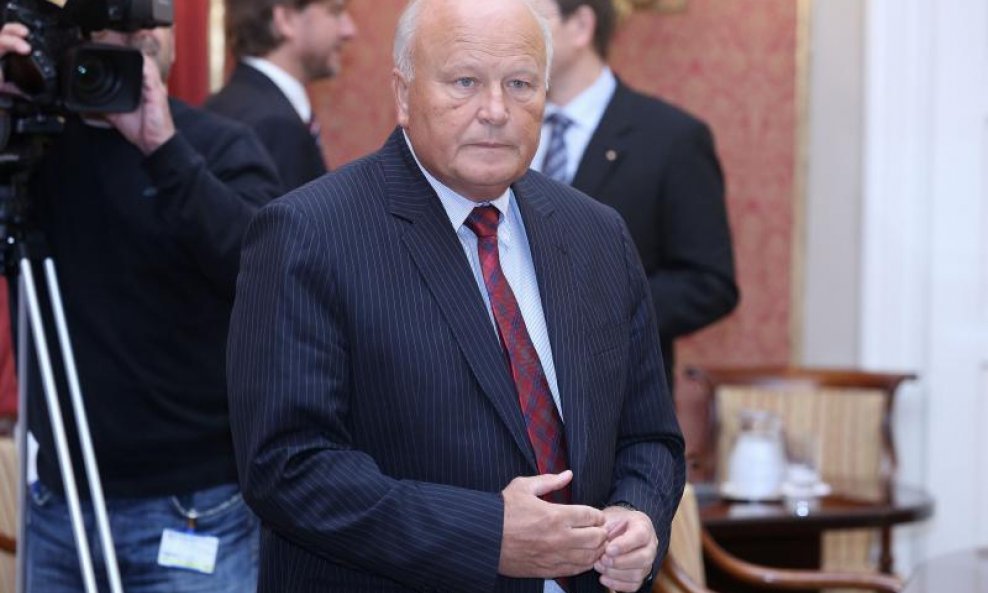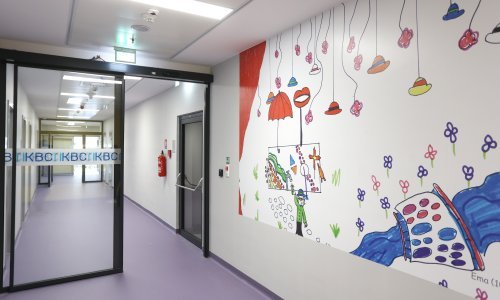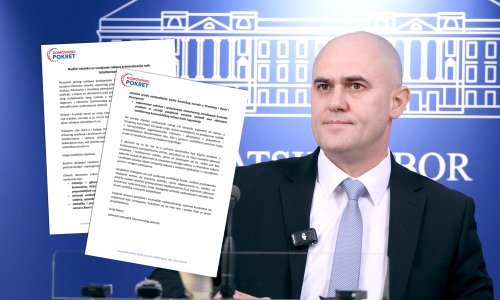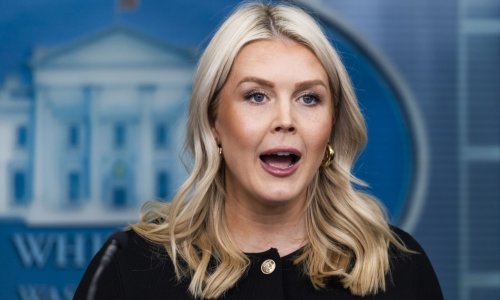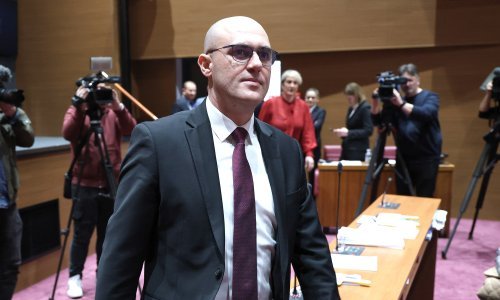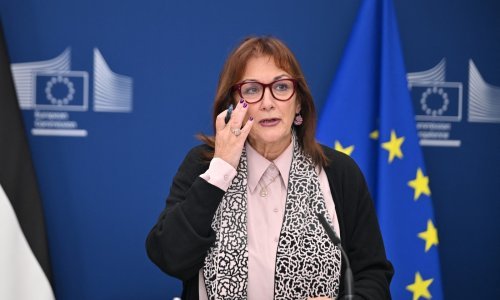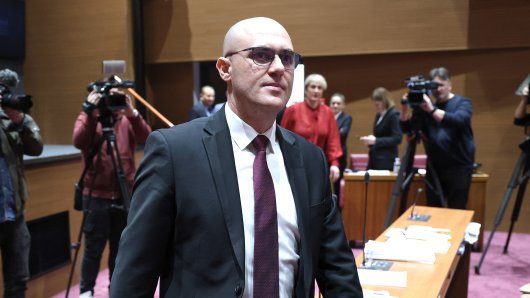Growing expenditures on interest and on the cost of Croatia's European Union membership in 2014 will lead to an increase in the budgetary deficit of some 8 billion kuna, with overall expenditures expected to reach HRK 131.7 billion kuna and the budget deficit to amount to HRK 17.4 billion or 5.5 % of GDP next year, Finance Minister Slavko Linic said at a government meeting in Zagreb on Thursday, presenting economic and financial policy guidelines for the 2014-2016 period.
Linic warned that in 2014, costs incurred by interest on the existing public debt would grow by HRK 2.5 billion kuna, while the country's EU membership costs would go up by 4.7 billion kuna. In addition, there will be 700 million kuna to be allocated for other expenditures for state aid and salaries, and summing up all those figures, the result is eight billion kuna more in the budget deficit compared to this year's deficit, the minister explained.
Thus the budget deficit would jump from this year's 3.5% of GDP to 5.5% of GDP next year.
The budget deficit of 5.5% is expected to fall down through 2015 and 2016 owing to the projected economic upturn, Linic said.
The economic and financial policy guidelines envisage a positive growth of 0.2% in 2013, 1.3% in 2014, 2.2% in 2015, and 2.5% in 2016.
As for the 2014 budget, there will be no other changes on the expenditure side, and the revenues side of the budget is put at HRK 114.3 billion, 0.8% up from this year.
Croatia's public debt will reach HRK 190 billion by the end of 2013, Linic said, adding that the debt will also include "hidden debts" incurred by the former government in 2011 and 2012 as well as "hidden debts" from previous years.
The cabinet today also endorsed some other measures aimed at fiscal consolidation in 2014-2016, with Linic saying that the parameters from the guidelines during the elaboration of the 2014 budget would be corrected in relation to the expected results of the reforms aimed at reducing the budget gap in the years to come, alongside the systematic retrenchment.
Major reforms are to be conducted in the healthcare system, pension schemes, education and the public sector pay system.
Deputy Prime Minister Branko Grcic recalled that Croatia would enter the Excessive Deficit Procedure (EDP) as its deficit exceeded the golden rule of 3% of GDP.
In order to reduce the budget gap below 3%, the EU's reference value for government deficits, and to keep the public debt below 60% of GDP, the European Commission is to provide the Croatian government with clear recommendations on how to go out of the high deficit and public debt, but the EDP is a long process taking at least three years, Grcic said.
The EC is due to reach an agreement with Croatia regarding the EDP next spring.



